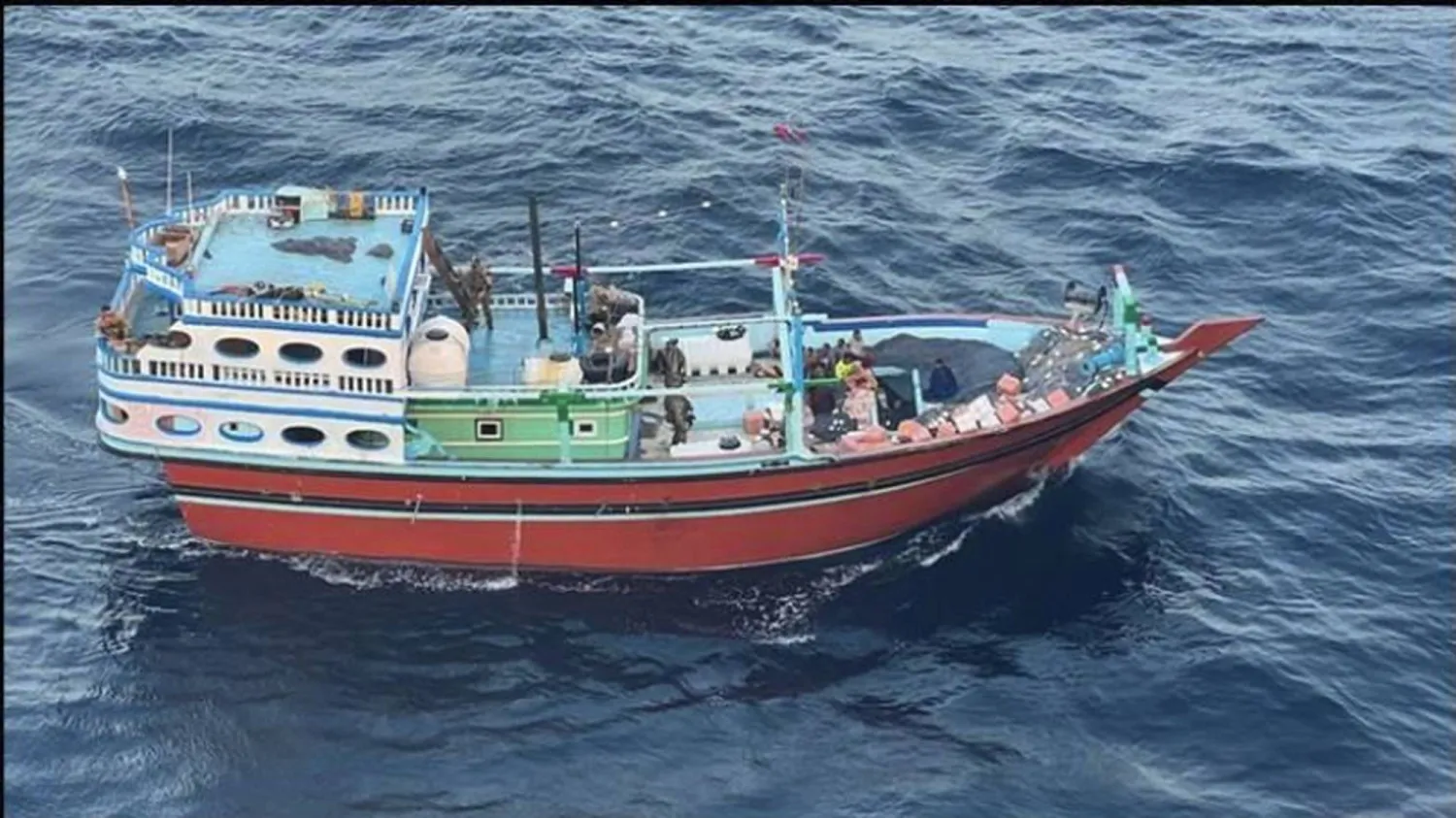Two men linked to Iran’s Revolutionary Guard are now facing terrorism charges in the US in connection with the interception of a vessel in the Arabian Sea that resulted in the deaths of two Navy SEALs earlier this year.
The new indictment announced Thursday by federal prosecutors in Richmond, Virginia, charges two Iranian brothers, Shahab Mir’kazei and Yunus Mir’kazei, as well as a Pakistani boat captain, Muhammad Pahlawan, with providing material support to Iran’s weapons-of-mass-destruction program, among other charges, The Associated Press reported.
The brothers are at large. Pahlawan and three of his crew members have been in custody since the Navy SEAL team intercepted their small vessel, described as a dhow, in January.
While boarding the dhow, US officials say Navy Special Warfare Operator 1st Class Christopher J. Chambers fell overboard as high waves created a gap between the two boats.
As Chambers fell, Navy Special Warfare Operator 2nd Class Nathan Gage Ingram jumped in to try to save him, according to US officials familiar with what happened.
Both Chambers and Ingram were declared dead after an 11-day search failed to find either man.
The search of the dhow turned up a variety of Iranian-made weaponry, including cruise and ballistic missile components, according to court documents.
US officials say the dhow was part of an effort to supply weapons to Houthi militants in Yemen, and that Houthis have stepped up attacks on merchant ships and US military ships in the Red Sea and Gulf of Aden in the wake of the Israel-Hamas war.
The Houthis have been designated as a terrorist group by the State Department since February, according to the indictment. The Revolutionary Guard Corps has been designated a terrorist group by the State Department since 2019.
The new indictment contains additional details linking the dhow to Iran. It alleges the two brothers who work for the Revolutionary Guard Corps paid Pahlawan 1.7 billion rials — about $40,000 in US dollars — to carry out multiple smuggling operations from Iran to the Somali coast near Yemen.
The federal public defender's office, which was appointed to represent Pahlawan, declined comment Thursday. The two Iranians, who are not in custody, do not have attorneys listed. Arrest warrants for both brothers were issued Wednesday.
Iranian Brothers Charged in Alleged Smuggling Operation that Led to Deaths of 2 Navy Seals

FILE - This undated image released by the US military's Central Command shows what it is described as the vessel in the Arabian Sea that carried Iranian-made missile components bound for Yemen's Houthi. (US Central Command via AP, File)

Iranian Brothers Charged in Alleged Smuggling Operation that Led to Deaths of 2 Navy Seals

FILE - This undated image released by the US military's Central Command shows what it is described as the vessel in the Arabian Sea that carried Iranian-made missile components bound for Yemen's Houthi. (US Central Command via AP, File)
لم تشترك بعد
انشئ حساباً خاصاً بك لتحصل على أخبار مخصصة لك ولتتمتع بخاصية حفظ المقالات وتتلقى نشراتنا البريدية المتنوعة







